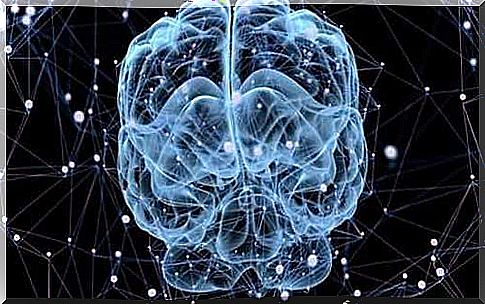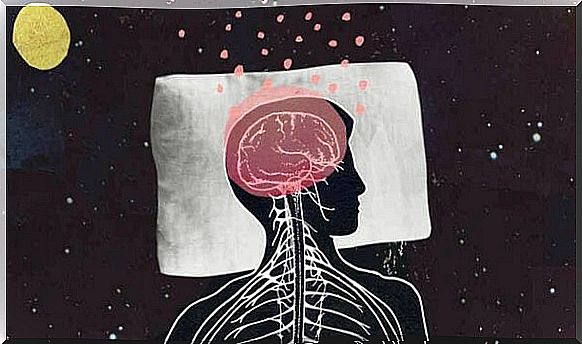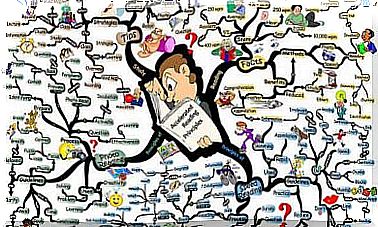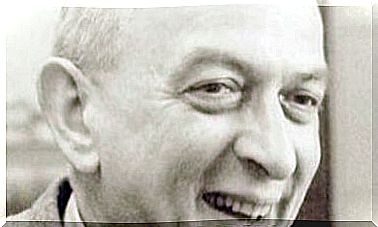Does The Brain Rest Every Now And Then?

Does the brain ever rest? We are often advised to “turn off” the brain, or to reduce its activity. However, even in conditions of calm and tranquility, such as in the case of meditation or night rest, this wonderful organ never stops working. It must be said, however, that the electrical impulses and the way in which it establishes the connections between neurons vary.
Every living organism is in continuous functioning. Cells carry out constant metabolic changes, so the term “rest” certainly cannot be associated with organs that perform vital functions. If the activity of the cells stops, they die. Based on these premises, it is natural to wonder if the brain rests every now and then.
We often think we have absolute control over the brain. As the entity that articulates our reasoning and decisions and that encompasses desires or projects, we are convinced that we can dominate it, when in reality it is not so.
When we sleep, the brain does not sleep, in fact it is incredibly active. In times of heightened stress and anxiety, the disconnection he manifests is greater because he cannot handle too many stimuli. This is why we have memory problems or confusion. The brain is a perfect machine that deserves to be studied thoroughly.

Does the brain ever rest?
The brain has a vital function, like all living cells, tissues, organs and systems of the body. In addition to the simple functions indispensable for life, related to metabolism, the production of proteins, the consumption of oxygen, the brain has other objectives.
It hosts the centers of power where cognition, consciousness and all the unconscious processes that we cannot control are articulated. The brain is constantly busy, both in the waking phase and in the sleep phase. In the REM phase, in fact, the electrical impulses of the brain are very intense.
Energy darkens the brain and unconscious activity
Neurobiologists such as Dr. Marcus E. Raichle, of the Washington University of Saint Louis, Missouri, have called dark energy those processes and decisions that we often carry out without being fully aware of them. For example: we are resting and suddenly a fly lands on our nose.
In less than a second we are able to ward off the insect with a hand. No need to think about it, the answer is automatic. The famous David Eagleman, in his book Incognito: the secret life of the mind , invites us to reflect on a simple aspect to know if the brain is resting or not: if it really took a break, we would stop being everything we are. We are also obliged to accept that there is indeed a dark side to this organ, a veiled dimension over which we have no control.
As Sigmund Freud said, the human brain and mind are largely based on unconscious activities and actions, those we cannot control.

The brain during sleep and the compartmentalization of synapses
We know that the brain does not sleep at night. It doesn’t matter if we are immersed in the deepest dream universe, our brain always remains incredibly active. However, it works differently and “allows” some cells to rest. Giulio Tonioni, a scholar of consciousness and sleep disorders at the University of Wisconsin-Madison, conducted an interesting research that led to the following results:
To say that the brain rests at night is half a mistake. It does not, in fact it has very intense electrical activity. However, it sends orders for a number of cells and brain areas to rest.
This condition is known as compartmentalization: certain synapses that are not useful during the night go out. In the morning they wake up in an intense and healthy way.
On the basis of this phenomenon, other areas are activated that facilitate the integration of information, the same ones that will shape, for example, part of our long-term memory.
The brain doesn’t rest, but we can help it function better
In addition to the question at the beginning of the article, many are curious to know if it is possible to make the brain more efficient. In this sense, know that hyperstimulation is one of the worst enemies of the brain. The pressure, the stress, the constant worries, the continuous use of electronic devices have a very serious impact on brain health.
Consequently, the ideal is to encourage those activities that enrich the brain in conditions of tranquility and harmony. Some processes rebalance its functions, stimulate it in a positive way and enhance its effectiveness. They are the following:
- Meditation
- Walk
- Daydreaming
- Rest for 20 minutes
- Engage in enjoyable activities: reading, drawing, walking in nature, having interesting conversations.
In conclusion, we remind you once again that the brain never rests. This, however, does not mean that we should not do it ourselves: following a routine, taking care of our emotions and respecting the rhythms of sleep is fundamental for our well-being and our brain.









